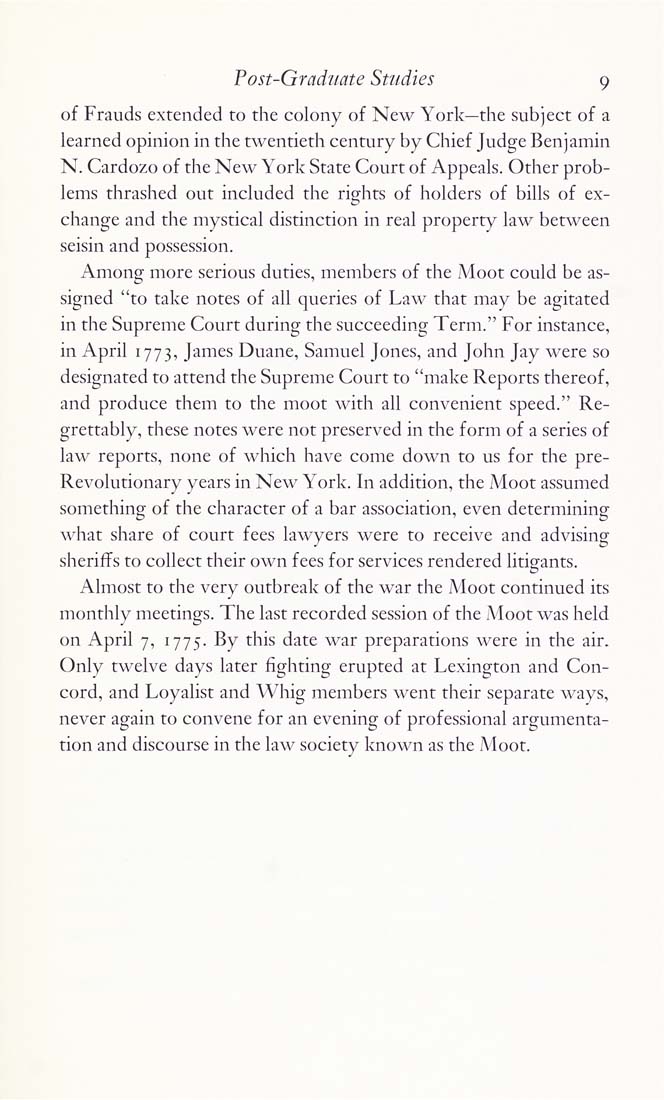Columbia Library columns (v.27(1977Nov-1978May))
(New York : Friends of the Columbia Libraries. )
|
||
|
|
|
|
| v.27,no.3(1978:May): Page 9 |

Post-Graduate Studies 9 of Frauds extended to the colony of New York—the subject of a learned opinion in the twentieth century by Chief Judge Benjamin N. Cardozo of the New York State Court of Appeals. Other prob¬ lems thrashed out included the righrs of holders of bills of ex¬ change and the mystical distinction in real property law between seisin and possession. Among more serious duties, members of the Moot could be as¬ signed "to take notes of all queries of Law that may be agitated in the Supreme Court during the succeeding Term." For instance, in April 1773, James Duane, Samuel Jones, and John Jay were so designated to attend the Supreme Court to "make Reports thereof, and produce them to the moot with all convenient speed." Re¬ grettably, these notes were not preserved in the form of a series of law reports, none of which have come down to us for the pre- Revolutionary years in New York. In addition, the Moot assumed something of the character of a bar association, even determining what share of court fees lawyers were ro receive and advising sheriffs to collect their own fees for services rendered litigants. Almost to the very outbreak of the war the Moot continued its monthly meetings. The last recorded session of the Moot was held on April 7, 1775. By this date war preparations were in the air. Only twelve days later fighting erupred ar Lexington and Con¬ cord, and Loyalist and Whig members went their separate ways, never again to convene for an evening of professional argumenta¬ tion and discourse in the law society known as the Moot. |
| v.27,no.3(1978:May): Page 9 |







